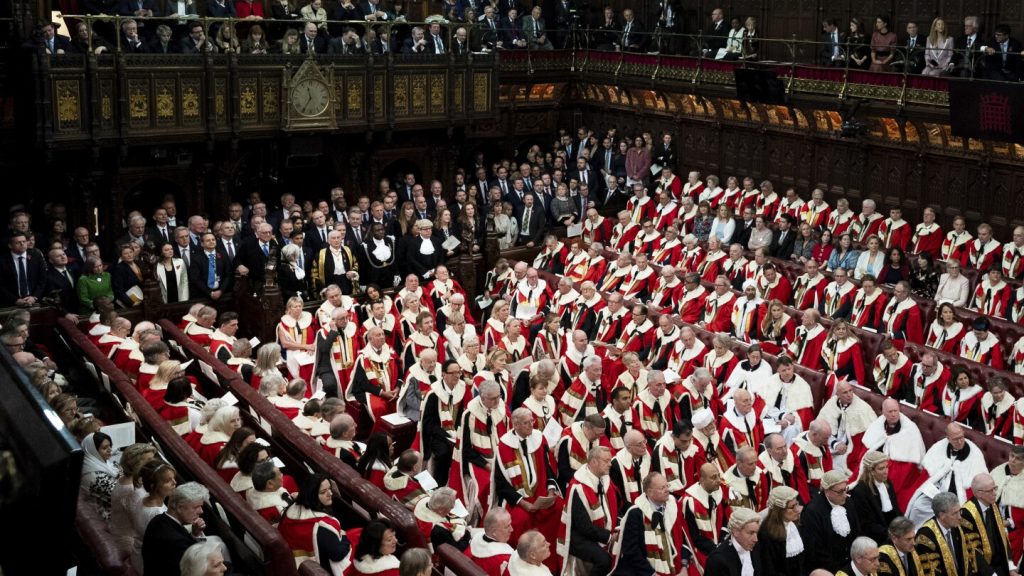British lawmakers have voted to approve a bill that would remove hereditary aristocrats’ right to sit and vote in the House of Lords after more than 700 years. The Labour Party government views this decision as a necessary reform to modernize the Parliament’s upper chamber. Constitution Minister Nick Thomas-Symonds stated that in the 21st century, there should not be reserved places in Parliament for individuals born into certain families. The UK is one of the only two countries in the world, along with Lesotho, to have a hereditary element in its parliament.
The current Earl of Devon, Lord Charles Peregrine Courtenay, who serves in Parliament as his ancestors have for centuries, believes that tampering with the UK’s unwritten constitution could be risky. He considers the constitution to have withstood numerous challenges over the past thousand years and values the consistency and continuity it provides. The bill aims to address the outdated and indefensible relic of hereditary peerage within the House of Lords and bring about a more equitable and representative system within the British Parliament.
The House of Lords, the upper chamber of the UK Parliament, has historically consisted of noblemen, with women only being allowed to join in 1963. In the 1990s, the Labour government led by Tony Blair removed most hereditary peers from the Lords, with only 92 allowed to remain temporarily. However, 88 hereditary peers still sit in the House of Lords, with an average age of almost 70. The Lords also include life peers, who are appointed by the government, and can claim expenses for their attendance while enjoying the perks of Parliament’s facilities.
There is a growing sentiment within some political circles to abolish the House of Lords altogether, with the Scottish National Party leading the charge. However, Labour has expressed a commitment to replacing the Lords with a more representative second chamber that aligns with the UK’s values and societal norms. The House of Lords, despite its criticisms, has been noted for its role in moderating controversial plans by the government, particularly during the Brexit negotiations and discussions around immigration.
While the Conservative Party has more support from Lords, there are also nonaligned members like Lord Courtenay who do not align with any political party. Some politicians on the left recognize the value of the Lords in providing checks and balances to the government’s decisions. The bill to remove hereditary peers from the House of Lords is set to progress through further scrutiny, with a likely chance of becoming law in the coming year. The bill will now move to the House of Lords, which can delay and amend legislation but ultimately cannot block it.
Lord Courtenay, the current Earl of Devon, who owns Powderham Castle in Devon, remains optimistic about the future despite being the last in his storied family to serve in Parliament. He reflects on his family’s historical involvement in government, ranging from crowning Henry VII to supporting the community in Devon. While acknowledging the evolving nature of British politics and governance, Lord Courtenay remains committed to his service and the legacy of his family in the realms of government and societal progress.


